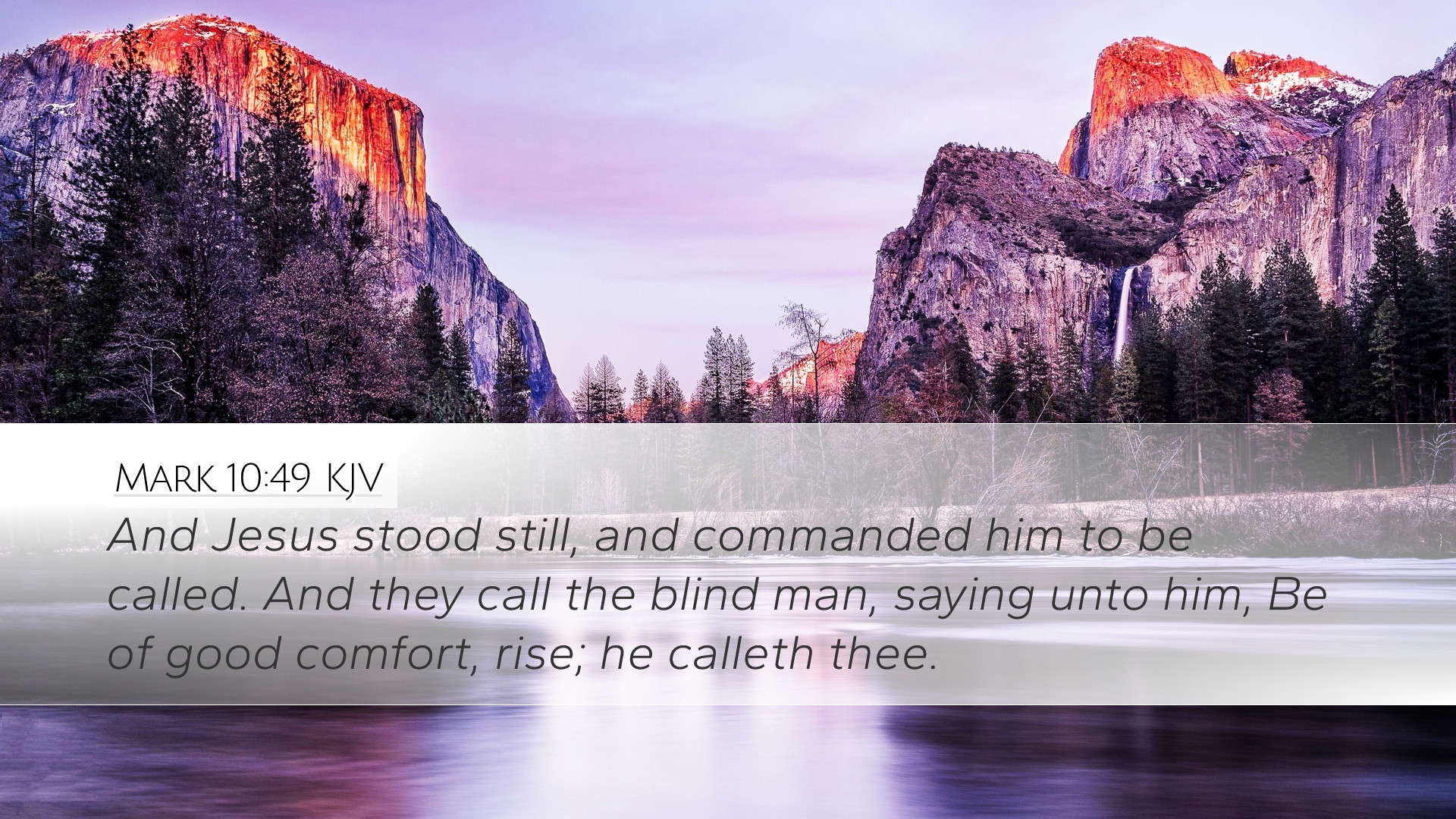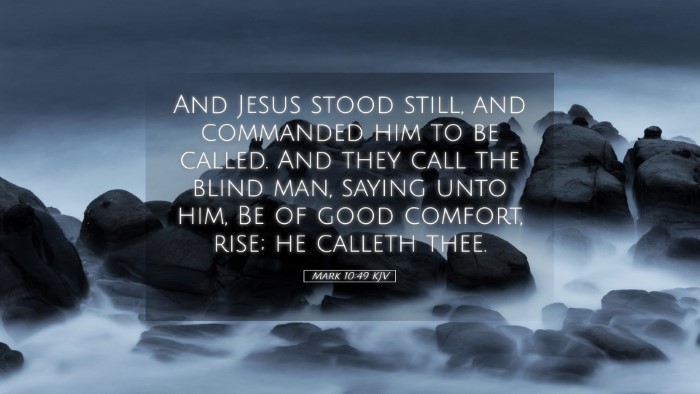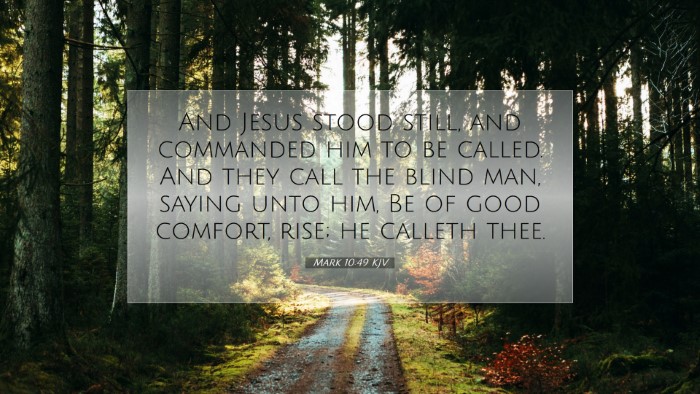Commentary on Mark 10:49
Text of Mark 10:49 (KJV): "And Jesus stood still, and commanded him to be called. And they call the blind man, saying unto him, Be of good comfort, rise; he calleth thee."
Introduction
This verse serves as a pivotal moment in the narrative, encapsulating the essence of Jesus's ministry—His compassion and willingness to respond to the needs of individuals. Jesus, in the midst of a crowd, shows remarkable attention to a blind beggar. This commentary will explore the theological implications, the narrative context, and the practical applications of this touching passage.
Exegesis and Context
The context of Mark 10:49 lies within the larger framework of Jesus's journey to Jerusalem. He is approaching the culmination of His earthly ministry, moving towards the cross. The encounter with Bartimaeus, the blind man, illustrates various theological themes including faith, persistence, and divine compassion.
1. The Response of Jesus
As noted by Matthew Henry, “Jesus stood still.” This action is significant; it reflects His nature as a Savior who is always willing to engage with the needs of those who reach out to Him. Here, we see that no matter how busy or surrounded by the multitude Jesus was, He halted to address a singular need.
2. The Call to Bartimaeus
After Peter's declaration of faith, Jesus commands that the blind man be called, showcasing the principle that faith invites divine attention. The call to Bartimaeus is initiated by Jesus but delivered through others. This communal aspect of faith emphasizes the role of discipleship in drawing people to Jesus. According to Albert Barnes, this transfer of Jesus's command to the crowd illustrates how believers can be instruments through which Christ’s invitation is extended.
The Nature of Faith
Bartimaeus’s faith is persistent and bold; he does not let the discouragement of the crowd prevent him from seeking Jesus. Adam Clarke elucidates that his cries for mercy exemplified the boldness that characterizes true faith. In contrast, the crowd's initial rebuke signifies the obstacles that often confront those who earnestly seek the Lord.
1. Overcoming Discouragement
Bartimaeus's unwavering faith amidst discouragement teaches an invaluable lesson about the nature of true faith. It is not easily deterred by external circumstances or societal limitations. This underscores the importance of pursuing Christ even in the face of opposition, a reminder for both believers and aspiring church leaders.
2. The Assurance of Christ’s Attention
The fact that Jesus halted to call Bartimaeus is a profound statement on the inclusiveness of the Gospel. No one is too insignificant for the Lord’s recognition. Matthew Henry emphasizes that the call to Bartimaeus serves to affirm that the Kingdom of God welcomes those who are often marginalized by society.
Theological Implications
This scripture addresses several crucial theological concepts:
- Divine Sovereignty: Jesus’s ability to command and respond reveals His divine authority and His role as the mediator of grace.
- Human Agency: The involvement of the crowd in calling Bartimaeus reflects the necessary partnership between divine initiative and human response in the ministry of the church.
- Grace and Mercy: Jesus’s willingness to engage with the outcast manifests the heart of God’s grace, showing that He seeks out the lost in their desperate state.
Practical Applications
For pastors, theologians, and students of Scripture, there are several applications drawn from Mark 10:49:
- Be Attentive to the Lost: Like Jesus, Christians are called to notice those around them who are seeking help, refusing to become too caught up in their own agendas.
- Cultivate Boldness in Faith: Bartimaeus serves as an example of the courage required to pursue Christ’s attention, encouraging believers to be outspoken in their faith.
- Engage in Community Ministry: The transition of the Lord's command through the crowd highlights the importance of community in ministry; believers should actively involve themselves in calling others to Christ.
Conclusion
Mark 10:49 invites deep reflection on how believers should carry out their faith in action. The encounter exemplifies Jesus's compassionate nature and the transformative power of faith. It encourages those in ministry to emulate Jesus in their approach to the downtrodden while also fostering a faith that is persistent and responsive to divine calls. This narrative encourages a holistic ministry, one that recognizes the marginalized and invites them into the fold of Christ’s compassionate reach.


